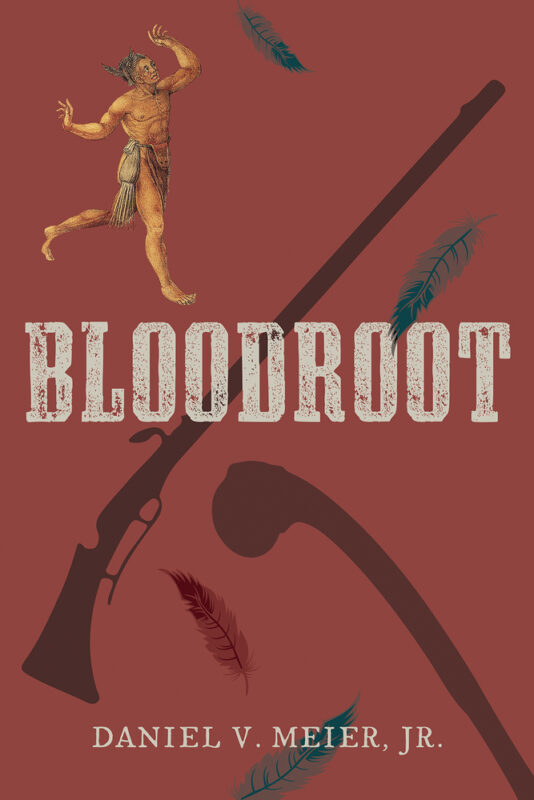Part 2: Things Are Not Fine
January 6, 2006 by A Slice of Orange in category Archives tagged as Craft
A Slice of Orange Blog is pleased to bring you part-two of Susan Squires Blog! For part-one, please scroll down to the preceding blog.
I had a great time during the holidays. I connected with friends and relatives, and I got pretty much just what I wanted for Christmas. Which started me thinking. That would not be a great situation for a novel. We want life to be nice to us, but we can’t be nice to our characters.
Because I’ve been knee-deep in contest entries recently as judging season rolls around, I wanted to talk just a bit about conflict. You may remember recently that I advised taking time to think about what each character wants out of a scene. It’s also important in constructing both your book and your scene to have the reader clear on why that character can’t have what they want.
Yep! Your main character can’t get what they want most, or even whatever they want out of a particular scene, for most of the book. If the scene looks like they do get what they want, there has to be an unforeseen outcome or some kind of a mistake which puts that character right back in conflict. Maybe they got what they thought they wanted, but the reader knows better. If they don’t get what they want, take that opportunity to make not getting it have an even worse consequence. Let’s look at an example. Sally wants to have John ask her to take a ride in his new car. He does. But they get in an accident and are stranded miles from town. Or he does, but the reader knows that he’s secretly a rat who will take advantage of her, and she shouldn’t be going anywhere alone with him. Make it worse—he’s a serial killer! Or he’s a great guy but he doesn’t ask her and worse yet, he asks her arch-rival Ann, instead. And they run over her bicycle which is her only transportation to school. And they laugh at her! You get the idea.
So the question you are asking yourself in each scene is “Does my character get what she wants?†The answer is either, “ Yes, but……†or, “No, and furthermore….†It’s hardly ever just “yes.†Until the last scene! Okay, I only put in “hardly ever†because I’m not a believer in rules. But I do believe that if the main character gets exactly what she wants without her having reservations or without the reader feeling that it was a big mistake, you are letting the story tension seriously lapse. If you do that at the end of the chapter, the reader may close the book and never pick it up again. You leave the reader feeling, “Nice, but so what?†instead of being on pins and needles to see what happens next.
Now let’s talk a little bit about the beginning of a book (remember, I’ve been reading a lot of contest entries, and they’re always about the beginning.) Here, setting the conflict has to come as early as you can manage it. I’ve seen lots of entries where the first pages set the stage, and things are just fine. Uh, oh. Setting the stage can work, but the character has got to have some problem. Okay, she may not have been transported to another universe where she will have to save earth from certain destruction by aliens yet, but she’s got issues! They can be internal conflicts, relationship problems, character flaws, something…. but “things are just fine†doesn’t capture a reader’s interest. Start things off in the middle of “not fine,†and go from there.
Going back to the example I gave of character motivation, what the hero and heroine want is, ideally, in conflict. I used The Companion as an example in my last blog, where Ian and Beth both want to return to the life they once knew. He can’t because he’s a vampire and a normal life is denied him, and her father died, forcing her to abandon her life as an itinerant archeologist. Okay, that means each has conflict between what they want and what they can have. But when we find he wants to return to England where she has always been wildly unhappy and she wants to return to North Africa where he suffered as a slave and has vowed never to return, their goals are in conflict with each other as well. Of course, we know that they are more the same than different. It’s what draws them together. And we suspect that during the course of the story, what they want will change, but the idea is to start them off with things, “not being fine.â€
So, let’s consciously separate ourselves from our characters. I hope the holidays were everything you wanted and expected, and I hope in 2006 you make your characters suffer until the last possible moment!
Part 1: Connections
January 5, 2006 by A Slice of Orange in category Archives tagged as Craft
This time of year is contest judging time. Many contests for unpublished writers come out in the fall, and I’ve been reading and judging lots of contest entries. I’ve noticed some particular problems that have to do with the connective tissue of a story. So, I thought I’d take a moment to talk about connections as they have to do with telling a good story.
We all know about creating nice, complex characters. We all try for an engaging plot line that pulls our reader through a story. But it’s good to understand that those issues come together at the nexus of character motivation.
Motivation is what engages your character with the incidents of the plot and moves your story along. If you are writing a book about the discovery of a cure for vampirism (just as a random example, since that’s what I’m doing right now), how might your various vampire characters feel about that? Does everybody think it’s a good idea? If not, why not? And what would they do about it? Voila! Motivation drives the action. Your characters can change what they want. They can want more than one thing at once, though not all things in the same degree. But you have to make what the characters want very clear to the reader at all times, and not let the motivation “drift.†Drifting just confuses a reader. They lose interest.
So how can you keep your character’s motivation from drifting? When I’m beginning a tale, I start with a statement: “All character X wants is…..†and I try filling in the blank. Dorothy in The Wizard of Oz wants to go home again. Neo wants to know what The Matrix is. When you do this for your hero and heroine, it’s always nice if they want something wildly conflicting. In The Companion, all Beth wants to do is get back to the life she knows in North Africa and avoid England. All Ian wants to do is get back to the life he knows in England and avoid North Africa. That’s what drives the story, and what I had to keep in mind every time they reacted to something that happened, or when they talked together. Their motivations change during the story, but it required showing that change very clearly, and why they change as well.
That’s okay for the big arc of the story, of course, but these connective motivations occur in each scene as well. Every character comes into a scene carrying an invisible suitcase. That baggage includes who they are, what they believe, what they want to happen in this scene and what just happened to them in the last scene. I see many contest entries where the writer seems to lose the thread of what is in the character’s suitcase. What happens in that case is that the scene lacks direction, or the character’s motivation doesn’t seem real. The dialogue feels “off.†We’ve all read stories (published and unpublished!) where this happens. The heroine’s father has just died and she seems to forget that. Or someone goes into an explanatory discourse in the middle of imminent danger. So take a moment to ask yourself before writing a scene, not “What has to happen in this scene?â€, but “What does the character want to happen right now?†“Why?†“How will they feel about what just happened to them in the last scene?†Do this for all the characters, even the minor ones, in your scene. Then write with that in mind. It will help your scene “ring true†both in dialogue and action. By the way, what happened in your scene now gets loaded into the character’s baggage!
When you keep the larger motivational arc in mind, and you pull those characters and their suitcases through each scene, asking what they want and what’s going on in their mind, you are connecting the tissues of your story, and connecting to your reader as well.
Writer’s Life: E.D. Stands for Emotional Depth
January 3, 2006 by A Slice of Orange in category From Our Archives tagged as Craft, humor, romantic comedy, Sandra Paul, writer's Life
Writer’s Life: E.D. Stands for Emotional Depth
By Sandra Paul
I used to lack emotional depth.
Hey, don’t pity me. You probably still do. You just might not know it yet.
After all, I wasn’t aware of my own deficiency until about my fifth book. But when my editor returned my manuscript for revisions there it was, right in the margin next to my dramatic, climatic resolution. Plain as day, my editor had written, Lacks E.D.
Okay, maybe it wasn’t plain as day at first–because I had no idea what, or possibly who, E.D. might be.
So I called my editor to find out.
“E.D. stands for emotional depth,” she told me. “The book needs more of it.”
“C’mon,” I said, trying not whine at the thought of doing more work. “My word count is only 50,000 words. This isn”t War and Peace here.”
“No, it certainly isn’t,” she agreed, much too readily. “But even in a short contemporary romance with, I might add, extra wide margins, the reader needs to come away emotionally satisfied. I don’t even know what your characters are feeling there at the end.”
I honestly didn’t understand how she could say that. I’d written it plain as day (really!) right there on the page. “The heroine feels sad,” I said, quoting directly from the manuscript, “That the hero has found out what she’s done. He feels betrayed and angry.”
“I need more.”
I sighed. “Okay. How ’bout I say she’s very sad and he’s very angry?”
She sighed louder. “I’m not looking for adjectives here,” she replied, very heartlessly. “What I want is to feel something. To feel what your characters are feeling. Go deeper, Sandy. I know you can do it.”
I hung up the phone feeling (in case it isn’t plain as day) very resentful. Easy for her to say. She was just an editor with a stable at the time of over thirty writers, with a slush pile higher than her head next to her desk, who merely spent ten to twelve hours a day editing, writing copy, proofing, and other stuff like that. Obviously, she was much too busy to understand the stress that I, a one-book-a-year (more or less) writer, was under.
Brooding on my editor’s lack of empathy, I went and had a leisurely lunch, then took a three hour nap. When I awoke, I went and did what I should have done in the first place.
I called my critique partners.
“I think it’s fine,” Angie told me after I’d read the last chapter to her five times. “In fact, if anything, there’s too much emotion. I suggest you delete the whole thing.”
She slammed down the phone. Gingerly, I hung up, too. O-kaaay. Apparently I wasn’t the only one dog-paddling in the shallow end of the emotional pool. I then moved on to Barbara J.
“This isn’t just your typical sweet traditional,” Barbara J. informed me. “This is a transformation story about a woman who, after doing something on impulse, learns from that experience to quit being afraid of life. To start going after what she wants.”
I have to admit, I liked the sound of that. But it wasn’t much help for my E.D. problem. So I called Barbara B.
“The universal appeal of this book is that it’s about anyone who’s ever done something stupid, and had to move past it,” she told me. “You need to explore that emotional reaction for the reader. Use the five senses.”
“But I’ve never done what the heroine did. And I never would.”
“No, but you’ve done other stupid things. Use those.”
Totally inspired, I hung up the phone. As usual, Barbara B. was right. I had done stupid thing—lots of them. I’d use the pain and embarrassment I’d lived through to make this book come alive for the reader.
So, after discussing the problem once more with my Artist’s Way group, a dozen people at OCC, and a paunchy, bald guy who happened to be pumping gas at the same time as me at the nearby 7-Eleven, I got down to work.
I thought of all the times I’d humiliated myself and I wrote—and rewrote—until I could smell the heroine’s fear when the hero discovers she’s the one who’d mooned him from the company van. Until I could see the horror on his handsome (yet rugged) face, when he realizes it was her, his trusted secretary (not to mention the woman he’s learned to love) that committed the dreadful deed. I wrote until I could hear the anguish in her soft voice as she struggles to explain, until I could taste their despair as they realize—Mooner and Moonee both—that the memory of what she did will forever be there between them. A big, white blot on their love.
I sank to emotional depths so deep that even those little, jelly-like fluorescent fishes from National Geographic couldn’t survive there. Then I made the hero and heroine both very, very happy when they somehow (cause I don’t want to give the story away here!) manage to overcome all that to live happily ever after.
And when I finally turned the book in—just one month past deadline—I knew I’d done a good job. In fact, my editor told me it was one of the best—if not the best—mooning book she’d ever read.
So, emotional depth? You betcha I’ve got it now.
Step aside, Leo Tolstoy.
The Man I Didn’t Mention
December 22, 2005 by A Slice of Orange in category Archives tagged as Motivational
By Geralyn Ruane
His name is Bruce, and I didn’t thank him. This past Saturday I received a white rose at OCC because a short story of mine has been accepted for publication. At the podium, I thanked every member of OCC and I thanked my fiancé Ron who sat in the front row and took my picture. But I did not mention Bruce Kluger.
I could not have done it without Bruce, yet I don’t much about him – he has red hair, wrote for Playboy and used to like the Baltimore Colts. But without a doubt, our brief encounter put a spark in my life that wasn’t there before.
Bruce is the editorial assistant for Marlo Thomas, the woman who is publishing my story in her book.
Here’s what happened:
Marlo Thomas is publishing a book of personal short stories called The Right Words at the Right Time, Volume 2. She was accepting submissions for stories about love and romance up until November 15. I sent in my story “Jane Austen Meets the New York Giants†by e-mail on that Tuesday evening just before midnight New York time. Wednesday morning I got a call from a really nice guy who introduced himself as Bruce Kluger, who worked for Marlo Thomas. He said he really liked my story. Then he said “Unfortunately . . .â€
AHHHHH! What, was he just calling to say “Nice try kiddo?†Had I missed the deadline? You mean this wasn’t THE CALL? But I continued listening, as lifeless as a deflated balloon in the gutter.
Unfortunately, he said, my story read too much like a short story, and it needed to read more like a personal essay. Could I re-shape it without losing any of the feeling of the story? I could have until the end of the week. He said he couldn’t even begin to tell me how to go about making such a change, but did I think I could do it? Bruce did offer to help me out by sending me a few of the essays that had already been accepted for publication in the book so I could see what he meant. I hung up the phone with the warm and fuzzy feeling that he wanted me to succeed.
But once I received the essays I was worried. I figured that most of my dialogue had to go – but that was the heartbeat of the story. Yikes! So, I tried to make it more essay-like but I kept a tiny bit of the dialogue. Too much? Too little? Not essay-like enough? I sent off my best effort Thursday afternoon. Bruce e-mailed me Thursday evening. He said he loved what I did, but he’d made some changes – he said he put back in some of his favorite things that I had cut. He put back in the dialogue! I was so happy. He made a few other changes, making it more accessible to those who haven’t memorized Pride and Prejudice. His changes were minimal and beautiful, and he did not step on my toes one little bit. He also wrote that he wanted to make sure Marlo liked it when he sent it to her on Friday. I TOTALLY felt like he was in my corner.
But I did not hear anything Friday morning. Oh, no – Marlo must have hated it! Late Friday afternoon, my fiancé Ron came to pick me up from work. I got in the car and he handed me his cell phone. Bruce had called earlier but hadn’t told Ron the verdict. I dialed. Bruce answered – I was in!!!!!
In fact, when Bruce had called earlier, he and Ron had talked about football for a while then he told Ron the good news but told Ron not to tell me. Ron played his part to perfection and it was indeed Bruce who told me I was published. He said Marlo Thomas’ immediate response to my story had been “Excellent.†I wondered why I hadn’t heard earlier in the day if this response had been so immediate. Then Bruce told me that Marlo Thomas wanted to end the story two paragraphs earlier than I had ended it. Bruce had spent the day fighting for my two paragraphs – he had gone to bat for me. As it turns out, Marlo’s cut made the story even better.
No, Virginia, I don’t think there is a Santa Claus, but there are people out there like Bruce Kluger who are even better. I have been a member of OCC for two and a half years, and I have heard some horror stories about the people in the publishing industry. Were any of you at the Dean Koontz meeting? As a best-selling author, he’s accumulated a bunch of shocking stories about how he’s been treated – AND HE’S DEAN KOONTZ! If a best-selling author can get knocked around, what chance do any of us have? So, sometimes, things can seem pretty dismal, and that maybe things suck over on the published side of the fence. But then there are people are out there like Bruce Kluger and Marlo Thomas. People who respect writing and writers, people who are a joy to work with. Maybe I’m being naïve. Maybe I lucked out. But this much I’m sure of – thanks to Bruce, and the knowledge that people like him exist, I’m not scared anymore.
Making A List
December 20, 2005 by A Slice of Orange in category Archives tagged as Motivational
I believe everyone, whatever your age, should have some life goals.
I don’t mean your ordinary New Year’s resolution. Those are nice to have, of course, but everyone knows the diet you start on January 1st lasts until, um, maybe January 2nd. If you work hard at it.
And I don’t mean your goal of selling a book or making the New York Times best seller list, although that’s what a lot of us would like to do. But those are goals that we can work toward but are truly not within our control.
I mean the kind of goal you’d think about when you’re lying there on your death bed and saying to yourself, “Darn, I wish I had. . .â€
There are just some things in life you want to do. If you don’t think about them and write them down, time will slip by. You’ll be too busy, too old, too infirm, too caught up with job, family and day-to-day obligations until finally you’ll find your chance to experience that particular dream has passed you by.
I learned this from my daughter, who had thyroid cancer. (She’s fine now, thank goodness!) Apparently when the big “C†rears it’s frightening head, it starts you to thinking about your life and what you want to do. Mind you, her life goals are way different than mine. Her first, which she celebrated on her 30th birthday, was to do a bungee jump. (She was thoughtful enough not to tell me ahead of time so I wouldn’t worry.)
Her next goal, accomplished in honor of her 35th birthday, was to climb the back side of Half Dome in Yosemite, no small accomplishment. (You can see a pattern here, right? Unlike her mom, she’s always been a jock.) Her most recent celebration had her jumping (safely, thank God!) out of an airplane!
Needless to say, my goals are somewhat less strenuous, though no less exciting for me.
As I was driving on the freeway to an Orange County RWA chapter meeting about a year ago, my career in the doldrums, when I decided I needed a new life goal. Within about a hundred feet (which can take a long time on the 91 Freeway), I realized I’d always wanted to be a standup comedienne. (It’s something about how I’ve always admired Carol Burnett.)
That afternoon when I returned home, I googled standup comedy classes. To my delight (the fates were clearly on my side), I found one starting the next day no more than five minutes from my house. It turned out learning to write jokes is an amazing art, almost like writing poetry, and it’s harder than it looks. Since that time I’ve had standup gigs for alumnae meetings, senior citizen homes, women’s clubs and writing groups. I’ve even been paid a time or two.
It’s not that I want to make a career of being a standup comic. Heck, I can’t even stay up late enough to watch the Jay Leno show. But, by golly, I’ve achieved a life goal and had fun doing it. (If you’re interested in my jokes, check my Web site at NovelTalk.com. We’ll change the jokes often. I’ll also be teaching an online joke-writing class in September 2006.)
More recently it occurred to me that I’d never ridden on a motorcycle. Clearly, I had a deprived youth. So the husband of my critique partner agreed to help me celebrate my recent birthday (those birthdays that end in “0″ or “5″ are really good occasions to let it all out) by taking me riding on his humongous Harley. What fun! And it wasn’t nearly as scary as I thought it would be. (Maybe I should have given that motorcycle crowd in high school a closer look.)
I’ve been very fortunate in my life, so there is not much I haven’t done that I wanted to do. But I still have a list.
I’ve seen grizzly bears in the wild, but I’d like to see polar bears too. And I want to hear wolves howling in the wilderness.
Chances are good my goals won’t resemble yours. But that’s okay. You might want to learn to knit, play the piano or be a circus aerialist or clown just for the fun of it.
The point is, you need to sit down with yourself and think about what you’d regret missing out on if that bus barreling down the road suddenly hit you.
Some people advocate you come up with 25 goals. But I say start small. You can always add more later.
Let me know what’s on your list.
http://www.charlottemaclay.com/
Make No Promises
Leisure Love Spell, June 2006Romantic Suspense
Affiliate Links
A Slice of Orange is an affiliate with some of the booksellers listed on this website, including Barnes & Nobel, Books A Million, iBooks, Kobo, and Smashwords. This means A Slice of Orange may earn a small advertising fee from sales made through the links used on this website. There are reminders of these affiliate links on the pages for individual books.
Search A Slice of Orange
Find a Column
Archives
Featured Books
A MARCHIONESS FOR CHRISTMAS
Will Antonia be forced to endure yet another bleak midwinter?
More info →HIS HIGHLAND SURPRISE
A confirmed bachelor with no intentions of settling down...
More info →RESCUED BY A RANCHER
What Happens When A Texas Sweetheart Is Born With A Silver Spoon? She Stirs Up Trouble In Hope Valley!
More info →SNOWLANDS
Will she be able to accept the person her memories describe?
More info →Newsletter
Contributing Authors
Search A Slice of Orange
Find a Column
Archives
Authors in the Bookstore
- A. E. Decker
- A. J. Scudiere
- A.J. Sidransky
- Abby Collette
- Alanna Lucus
- Albert Marrin
- Alice Duncan
- Alina K. Field
- Alison Green Myers
- Andi Lawrencovna
- Andrew C Raiford
- Angela Pryce
- Aviva Vaughn
- Barbara Ankrum
- Bethlehem Writers Group, LLC
- Carol L. Wright
- Celeste Barclay
- Christina Alexandra
- Christopher D. Ochs
- Claire Davon
- Claire Naden
- Courtnee Turner Hoyle
- Courtney Annicchiarico
- D. Lieber
- Daniel V. Meier Jr.
- Debra Dixon
- Debra H. Goldstein
- Debra Holland
- Dee Ann Palmer
- Denise M. Colby
- Diane Benefiel
- Diane Sismour
- Dianna Sinovic
- DT Krippene
- E.B. Dawson
- Emilie Dallaire
- Emily Brightwell
- Emily PW Murphy
- Fae Rowen
- Faith L. Justice
- Frances Amati
- Geralyn Corcillo
- Glynnis Campbell
- Greg Jolley
- H. O. Charles
- Jaclyn Roché
- Jacqueline Diamond
- Janet Lynn and Will Zeilinger
- Jeff Baird
- Jenna Barwin
- Jenne Kern
- Jennifer D. Bokal
- Jennifer Lyon
- Jerome W. McFadden
- Jill Piscitello
- Jina Bacarr
- Jo A. Hiestand
- Jodi Bogert
- Jolina Petersheim
- Jonathan Maberry
- Joy Allyson
- Judy Duarte
- Justin Murphy
- Justine Davis
- Kat Martin
- Kidd Wadsworth
- Kitty Bucholtz
- Kristy Tate
- Larry Deibert
- Larry Hamilton
- Laura Drake
- Laurie Stevens
- Leslie Knowles
- Li-Ying Lundquist
- Linda Carroll-Bradd
- Linda Lappin
- Linda McLaughlin
- Linda O. Johnston
- Lisa Preston
- Lolo Paige
- Loran Holt
- Lyssa Kay Adams
- Madeline Ash
- Margarita Engle
- Marguerite Quantaine
- Marianne H. Donley
- Mary Castillo
- Maureen Klovers
- Megan Haskell
- Melanie Waterbury
- Melissa Chambers
- Melodie Winawer
- Meriam Wilhelm
- Mikel J. Wilson
- Mindy Neff
- Monica McCabe
- Nancy Brashear
- Neetu Malik
- Nikki Prince
- Once Upon Anthologies
- Paula Gail Benson
- Penny Reid
- Peter Barbour
- Priscilla Oliveras
- R. H. Kohno
- Rachel Hailey
- Ralph Hieb
- Ramcy Diek
- Ransom Stephens
- Rebecca Forster
- Renae Wrich
- Roxy Matthews
- Ryder Hunte Clancy
- Sally Paradysz
- Simone de Muñoz
- Sophie Barnes
- Susan Squires
- T. D. Fox
- Tara C. Allred
- Tara Lain
- Tari Lynn Jewett
- Terri Osburn
- Tracy Reed
- Vera Jane Cook
- Vicki Crum
- Writing Something Romantic
Affiliate Links
A Slice of Orange is an affiliate with some of the booksellers listed on this website, including Barnes & Nobel, Books A Million, iBooks, Kobo, and Smashwords. This means A Slice of Orange may earn a small advertising fee from sales made through the links used on this website. There are reminders of these affiliate links on the pages for individual books.








































